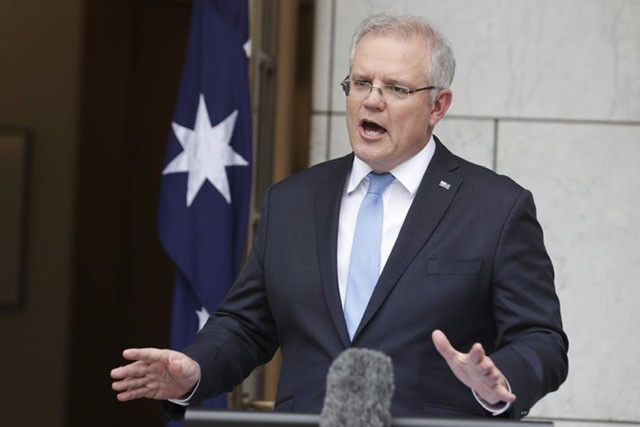
Sharing the pain
On 3 April 2020, the Federal Cabinet released the National Cabinet Mandatory Code of Conduct – SME Commercial Leasing Principles During COVID-19 (the “Code”).
The purpose of the Code is to impose a set of good faith leasing principles for application to commercial tenancies (including retail, office and industrial) between owners and tenants, in circumstances where the tenant is a small-medium sized business (annual turnover of up to $50 million) and is an eligible business for the purpose of the Commonwealth Government’s JobKeeper programme (“SME tenants”).
The Code applies in spirit to all leasing arrangements for affected business during the COVID-19 pandemic period (defined by the period during which the JobKeeper programme is operational).
The objective of the Code is to share, in a proportionate, measured manner, the financial risk and cashflow impact during the COVID-19 period
National Cabinet National Code of Conduct
It is intended that landlords will agree tailored, bespoke and appropriate temporary arrangements for each SME tenant, taking into account their particular circumstances on a case-by-case basis.
Overarching Principles
The Code sets overarching principles which must be applied in establishing arrangements between landlords and tenants:
- Landlords and tenants share a common interest in working together, to ensure business continuity, and to facilitate the resumption of normal trading activities at the end of the COVID-19 pandemic during a reasonable recovery period.
- Landlords and tenants must negotiate in good faith.
- Landlords and tenants must act in an open, honest and transparent manner, and will each provide sufficient and accurate information within the context of negotiations to achieve outcomes consistent with this Code.
- Any agreed arrangements will take into account the impact of the COVID-19 pandemic on the tenant, with specific regard to its revenue, expenses, and profitability. Such arrangements will be proportionate and appropriate based on the impact of the COVID-19 pandemic plus a reasonable recovery period.
Leasing Principles
In negotiating and enacting appropriate temporary arrangements under the Code, the following leasing principles are to be applied:
- Landlords must not terminate leases due to non-payment of rent during the COVID-19 pandemic period (or reasonable subsequent recovery period).
- Tenants must remain committed to the terms of their lease, subject to any amendments to their rental agreement negotiated under the Code. Material failure to abide by substantive terms of their lease will forfeit any protections provided to the tenant under the Code.
- Landlords must offer tenants proportionate reductions in rent payable in the form of waivers and deferrals of up to 100% of the amount ordinarily payable, based on the reduction in the tenant’s trade during the COVID-19 pandemic period and a subsequent reasonable recovery period.
- Rental waivers must constitute no less than 50% of the total reduction in rent payable under principle #3 above.
Landlords must offer tenants proportionate reductions in rent payable in the form of waivers and deferrals of up to 100% of the amount ordinarily payable
- Payment of rental deferrals by the tenant must be amortised over the balance of the lease term and for a period of no less than 24 months, whichever is the greater, unless otherwise agreed by the parties.
- Any reduction in statutory charges (e.g. land tax, council rates) or insurance must be passed on to the tenant.
- A landlord should seek to share any benefit it receives due to deferral of loan payments, provided by its financier.
- Landlords should where appropriate seek to waive recovery of outgoings and other expenses from tenants, during the period the tenant is not able to trade. Landlords may reduce services during this period.
- Repayment of negotiated arrangements should occur over an extended period in order to avoid placing an undue financial burden on the tenant and should not commence until the COVID-19 pandemic has ended.
Landlords must not draw on a tenant’s security for the non-paymment of rent…
- Landlords must not draw on a tenant’s security for the non-payment of rent (be this a cash bond, bank guarantee or personal guarantee) during the period of the COVID-19 pandemic and/or a reasonable subsequent recovery period.
- The tenant should be provided with an opportunity to extend its lease for an equivalent period of the rent waiver and/or deferral period outlined in item #2 above. This is intended to provide the tenant additional time to trade, on existing lease terms, during the recovery period after the COVID-19 pandemic concludes.
- Landlords agree to a freeze on rent increases (except for retail leases based on turnover rent) for the duration of the COVID-19 pandemic and a reasonable subsequent recovery period, notwithstanding any arrangements between the landlord and the tenant.
- Landlords may not apply any prohibition on levy any penalties if tenants reduce opening hours or cease to trade due to the COVID-19 pandemic.
Binding Mediation
Where landlords and tenants cannot reach agreement on leasing arrangements (as a direct result of the COVID-19 pandemic), the matter will be referred and subjected (by either party) to applicable state or territory retail/commercial leasing dispute resolution processes for binding mediation.
Landlords and tenants must not use mediation processes to prolong or frustrate the facilitation of amicable resolution outcomes.
How can we help?
We can help you interpret the Code; assess how it applies to you our lease; and document agreements that flow from it. We are happy to have informed discussions with both landlords and tenants and their lenders, in respect of their options.
If you need assistance, please give us a call today.
*Disclaimer – the information contained in this post is intended as a guide only. Professional advice should be sought before applying any of the information to particular circumstances. While every reasonable care has been taken in the preparation of this update, RE Legal does not accept liability for any errors it may contain.
